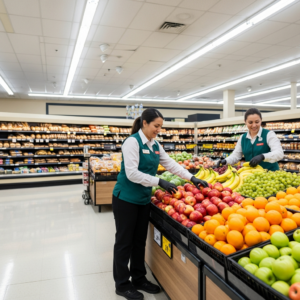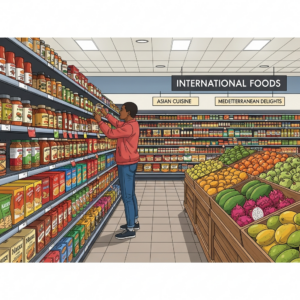Choosing between organic and conventional fruits and vegetables is a common dilemma for many shoppers. Understanding the differences in farming practices, nutritional value, and environmental impact can help you make informed decisions that align with your health and values.
Farming Practices and Pesticide Use
The most notable distinction between organic and conventional produce lies in the farming methods. Organic farming avoids synthetic pesticides, herbicides, and fertilizers, opting for natural alternatives like compost and crop rotation. Conventional farming, on the other hand, often relies on chemical treatments to enhance crop yield and control pests. This difference impacts the level of chemical residues found on produce, making organic options a cleaner choice for many consumers.
Nutritional Content and Quality
While the nutritional differences between organic and conventional fruits and vegetables can vary, some studies suggest that organic produce contains higher levels of certain nutrients, such as antioxidants and vitamins. These benefits may stem from the healthier soil conditions promoted by organic farming practices. For those prioritizing nutrient density, organic options often provide an added advantage alongside their fresh, vibrant taste.
Impact on the Environment
Organic farming has a significantly lower environmental footprint compared to conventional methods. By avoiding synthetic chemicals, organic practices protect soil health, conserve water, and promote biodiversity. Conventional farming, while efficient in producing large yields, can contribute to soil degradation, water pollution, and reduced ecosystem balance. Choosing organic fruits and vegetables supports a more sustainable and environmentally friendly agricultural system.
Cost and Accessibility
One challenge for many consumers is the higher cost of organic produce. This price difference is often attributed to the labor-intensive practices and smaller yields of organic farming. However, as demand for organic food grows, accessibility has improved, with more affordable options appearing in mainstream grocery stores. For those balancing budget concerns with a desire for cleaner food, selectively choosing organic items for high-risk crops can be a practical compromise.
Understanding the differences between organic and conventional fruits and vegetables allows consumers to make choices that reflect their health priorities and environmental values. Both options have their merits, but the cleaner farming methods and potential nutritional benefits of organic produce make it an increasingly popular choice for health-conscious shoppers.
Learn More
Why Organic Produce Is Growing in Popularity Among Health-Conscious Shoppers




